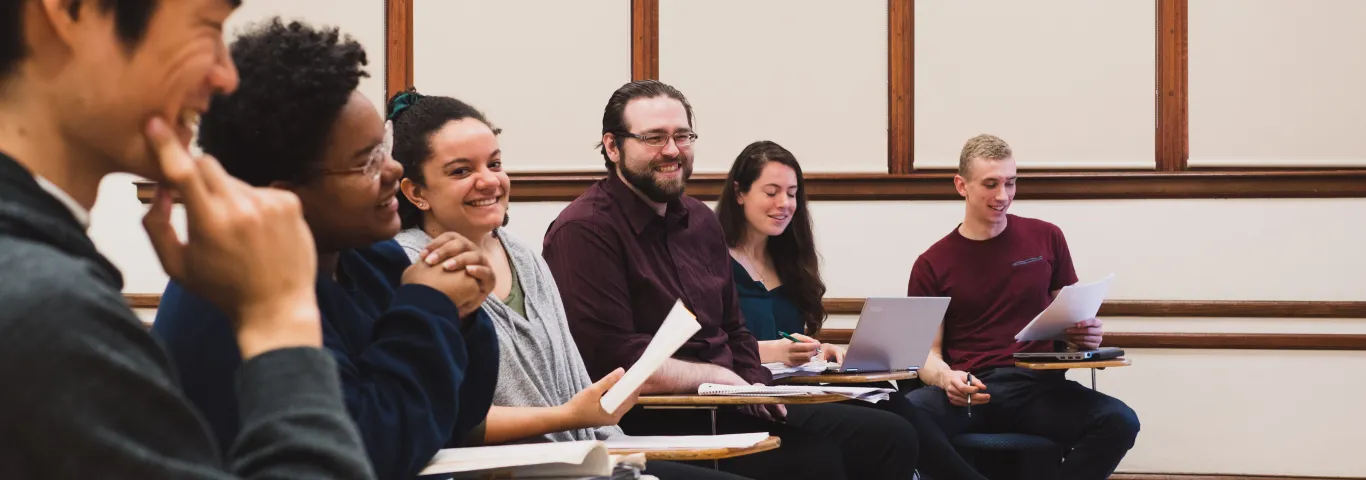Two unique programs. One amazing department.
The Department of Jewish, Islamic and Middle Eastern Studies (JIMES) at Washington University in St. Louis offers two standalone master’s degrees: a Master of Arts in Jewish Studies and a Master of Arts in Islamic and Near Eastern Studies. While both programs have their own curricula, the department’s integrated nature provides students a unique opportunity to explore the shared experiences and interactions of Jews and Muslims in their various cultural and historical contexts.
Both MA programs are two-year full-time programs that foster breadth and depth of study and include a graduation requirement of advanced language proficiency. Close mentoring allows for student to tailor a program of study to their specific interests and goals. Thanks to the excellence of our MA programs, many of our graduates have been subsequently accepted into highly prestigious PhD programs.
Deadline to apply: December 15.
Beyond the MA
The Department of Jewish, Islamic and Middle Eastern Studies does not currently offer a home-based Ph.D. program. Students who would like to pursue a PhD in one of the fields of Jewish Studies or Islamic and Near Eastern Studies may do so under the auspices of a PhD granting department or program at Washington University (such as History, Anthropology, or Comparative Literature) in cooperation with participating faculty from JIMES. In such instances, the prospective student should apply directly to the appropriate disciplinary department or program at Washington University.





















